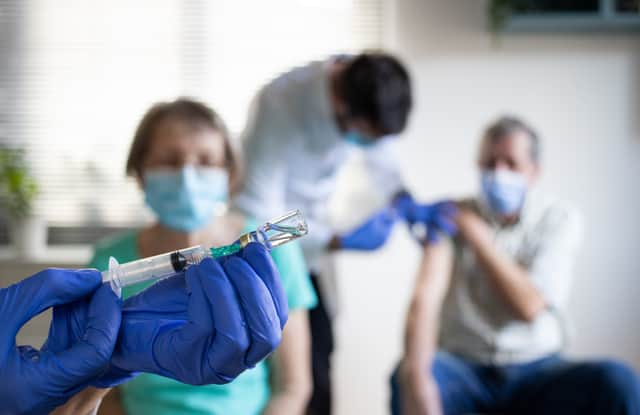The Covid vaccine calculator has been updated with new July target - find out when you may now get the jab


Prime Minister Boris Johnson recently announced an ambitious target to have offered all UK adults a first Covid vaccine by the end of July 2021.
The announcement marked an acceleration in the vaccine rollout, under which it's hoped that everyone over 50 and all those with underlying health conditions will be offered their first coronavirus jab by 15 April.
Advertisement
Hide AdAdvertisement
Hide AdThe remainder of the adult population should then be offered a first dose by 31 July, though the priority order for this group is yet to be decided.
In response to this announcement, the UK-wide vaccine calculator has now been updated, meaning you can see an updated estimate of when you might now receive the vaccine.
How to use the vaccine calculator
To find out when you might receive your first dose, all you have to do is input your age and answer some questions on the web page about whether you have any medical conditions, whether you're an NHS worker, and whether you're pregnant.
Based on the nine point priority list, the calculator will then work out where you currently stand in the vaccine queue.
Advertisement
Hide AdAdvertisement
Hide AdFor those under 50 with no underlying health conditions, the first dose should be received prior to the end of July. However, it may take longer than this for you to be fully vaccinated, with second doses offered at an interval of up to 12 weeks, meaning this group may receive their final dose in August or September.
As well as a UK-wide calculator, the website offers specific calculators for England, Scotland and Wales.